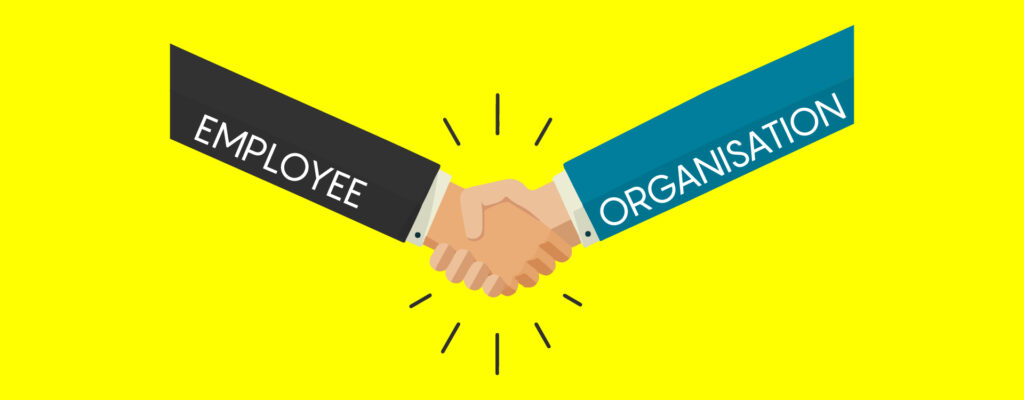What Are Employee Relations?
The term, ‘employee relations’ (ER), refers to the relationship employees share with each other in the workplace. This can be on a collective or individual level. The relationships can be employee-employee relationships, employee-manager relationships or between members of the management team itself.
Keep in mind that in the workplace, no single employee is a one-man-army. Everyone is dependent on another person or a group of people to ensure that the work is carried out smoothly. The responsibility, therefore, falls to the Human Resources (HR) department to help everyone maintain healthy workplace relations. It is the aim of the HR to formalise employee relationships and the issues that come with it. The issues can range anywhere from emotional, physical, practical to even contractual disputes. Understanding human nature is crucial when dealing with such elements.
‘‘
A healthy work-based relationship is key to a successful workplace.
Some Major Areas That Employee Relations Should Cover
Excessive and unplanned work leaves
One of the biggest issues that commonly come up is those pertaining to employees taking leaves too often or without notice to the concerned parties. As mentioned before, no one is independent within the realm of the organisation. Everyone relies on someone to get the work done. If one link in the chain is absent, the entire process collapses or grinds to a halt.
The issue of absenteeism also refers to general tardiness. Organisations have a fixed time for a reason – to maximise the productivity of work when people are generally most active. A lot of scheduling and planning happens around these hours. If someone were to suddenly take off without a moment’s notice, it leaves the organisation short-handed. This aspect emphasises codependency in the workplace.
Lack of respect for superiors
Everyone disagrees with the management from time to time, but there is a line between disagreements and blatant disrespect. Positions of authority and leadership exist for a reason. They help keep everyone’s head on straight at work. Some may not agree with the tactics used but there is a diplomatic way to solve these disagreements.
Frequent disputes with co-workers
Every-so-often you will have that one employee with a temper. Standing up for yourself is good as long as it is done professionally because the workplace relationship is all about – professionalism. Having an employee whose first resort is always direct conflict and that too often, makes for a very unhealthy workplace atmosphere and will affect the productivity of everyone else who has to work with him or her.
Unprofessional and lewd behaviour
In recent years workplace environments have become more sensitive to the needs of men and women in terms of recognising and solving issues relating to sexual harassment – as it should be. This is a serious thing that should be addressed as quickly as possible. These issues could be anything from an unprofessional comment about someone’s body, a personal attack, emotional manipulation, or physical harassment. It is absolutely unacceptable and should be dealt with immediately.

Employee-Organisation Relationships
The relationship that exists between an employee and the organisation is a very delicate one and should be handled as such. The actual written contract aside, there exists a social and psychological contract, an unspoken promise between the employee and the organisation. Issues such as a lack of trust, a dip in job satisfaction, and over-all performance often occur when this unspoken contract is breached.
According to a study called, “The development of psychological contract breach and violation: a longitudinal study” by Sandra L. Robinson and Elizabeth Wolfe Morrison, there are potentially two main reasons that an employee might perceive that the contract was breached: reneging and incongruence.
Reneging is when the organisation has made a promise to the employee and has knowingly failed to uphold the obligation. For example, when an organisation hires a new employee, the management usually throws in some incentives to make the deal more appealing, especially if the pay is a little lower than the industry standard. This could take the form of a promise to have the employee promoted after two or three years, bump up their salary after a few months, or the promise of special benefits.
Incongruencies basically amount to perspectives and ambiguities in the verbal contract. For example, if an employer is trying to convince a potential employee to join the company they might say, “Well you will find that this is a great organisation for growth, most people get promoted within three years to senior positions.” The employee is most likely to misinterpret the likelihood of a promotion for a promise of one and when that ship fails to sail, the employee perceives this as a breach of the unspoken contract. As an organisation you can mitigate both issues by:
- Stick to the promises made to the employee and stay consistent across the board. If you know for a fact that you cannot deliver on the promise, do not make it at all.
- Be extremely clear and straightforward in whatever you communicate. Even if you are just conversing in the interview phase, remember that the employee will take every word to heart, especially if they really need a job. So, even a vague hint at a promotion in the near future could be misinterpreted for a promise.
- Stick to the promises made to the employee and stay consistent across the board. If you know for a fact that you cannot deliver on the promise, do not make it at all.
Best Practices To Improve Employee Relations
Honest and clear communication
Be sure to share regular updates with your internal team, answer any questions they may have, no matter how silly it may seem. Build a relationship where everyone feels confident and comfortable enough to voice their concerns. Otherwise, how else will you know where the team is falling short or if someone is not happy with their job?
Align with the vision
Make sure that the mission and vision of your company are clearly communicated to your employees. Getting everyone on the same page ensures that every member of the team is actively working towards achieving the same goal. A good way to do this is to try something fun like a weekly quiz or an informal meeting to discuss if things are flowing as per the vision and how it can be course-corrected if not.
Innovative approaches to indirectly remind them, is better than trying to drill it into their head by repeating it over and over.
Trust your team
If there is one thing that breeds resentment and mistrust, it is micro-management. Your job as a business owner or manager is to make sure that the employees know what they need to do, give them the tools they need to do it and help them if they hit a snag. Hovering over them and following up on every detail, every second of the day just to make sure that they are working shows them that you do not trust them.
Obviously, you will have to follow-up with the progress, so rather than micro-managing, hold a weekly review meeting or even a daily one to make sure that everything is still on track. It is true some work situations need more extensive monitoring but remember, everything should be in moderation.
Recognise and appreciate
If you walk into a car dealership or big commercial grocery stores, you might come across those plaques on the wall that says ’employee of the month’ with a picture of the employee. The reason for this type of recognition is that these companies have realised that there is a fundamental psychological link between work performance and praise. People want to be appreciated and seen; especially when they put in so much work and it is only fair that they get that recognition.
A few ways in which you could introduce this into your workplace are by maybe sending them a gift basket, a paid vacation to an exotic and fun location, or even a nice little in-office celebration in their honour. After all, it is the thought that counts.

‘‘
Building relationships in the office is similar to the way we do it in the real world - it is about being human at the end of the day.
Constant feedback and collaborations
A good way to nurture a healthy and positive relationship with employees is to give them constantly, or at the very least, regular feedback on their work. Ensure that you do not say anything in a condescending manner or demeaning tone. Keep it professional and constructive. Be it praise or constructive criticism, it shows them that you are taking the time to give their work the attention it deserves. It is also a great opportunity to bounce new ideas off each other and work on collaborative projects.
Make an investment
Go the extra distance and put some real-time into your employees by helping them develop within the organisation. You could offer them opportunities to develop their skills by
- Paying for a workshop on a particular topic.
- Send them to a conference
- Offer them a gym membership to help them stay physically active balancing out the stationary nature of the job.
Do not play favourites
A really quick way to ruin relationships with your employees is to show favouritism. People may not always appreciate a slap on the wrist or firmness, but they do appreciate fairness and consistency. Show your employees that there are no exceptions if there needs to be a rule in place. Even when considering giving someone leeway for special emergencies, be sure to keep it fair to everyone and give others the same consideration as well.
At the end of the day, the types of relationships you cultivate in the workplace will set the tone for the organisation as a whole and the organisational culture will follow. Organisational culture is extremely important for a healthy work environment and the overall image of the company. Go read our article on organisational culture to learn more about it.




